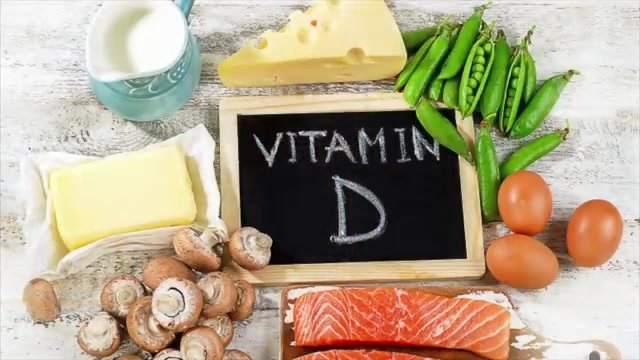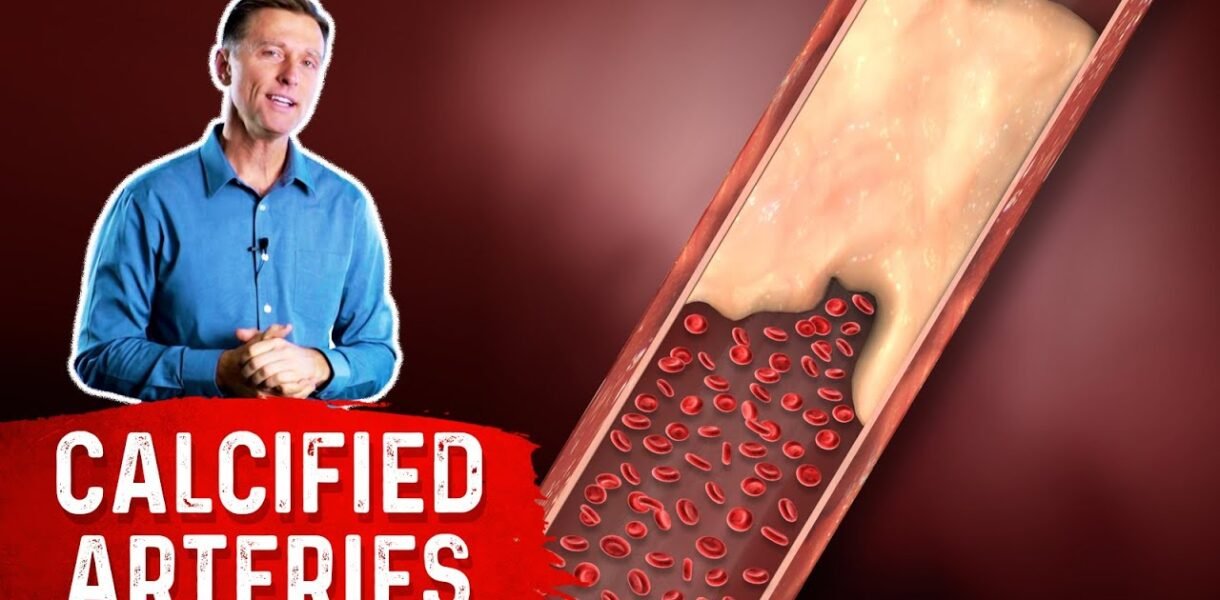Table of Contents
Discover how potassium controls vascular calcification and supports cardiovascular health. Learn about the benefits of a high-potassium diet in preventing arterial stiffness
Potassium and calcium
I found some very interesting research related to how potassium can influence how much calcium builds up in your arteries .
It’s actually quite fascinating .
| Category | Details |
|---|---|
| Role of Potassium | Essential for muscle contractions, nerve transmission, and maintaining fluid and electrolyte balance. |
| Impact on Vascular Calcification | Potassium helps prevent the buildup of calcium in the arteries, reducing the risk of vascular calcification. |
| Mechanism of Action | Potassium influences the expression of genes that regulate calcium deposition in the vascular system. |
| Benefits of Adequate Potassium Levels | – Reduces risk of atherosclerosis – Supports cardiovascular health – Improves arterial function |
| Sources of Potassium | – Bananas – Avocados – Leafy greens – Beans – Nuts – Seeds – Potatoes – Fish |
| Symptoms of Potassium Deficiency | Muscle cramps, weakness, fatigue, constipation, irregular heartbeats, tingling or numbness, nausea, vomiting, bloating, abdominal pain |
| Dr. Berg’s Recommendations | Ensure adequate potassium intake through diet, consider supplements if necessary, monitor potassium levels, and consult with a healthcare provider for personalized advice. |
| Importance of Monitoring Levels | Regular check-ups with healthcare providers, monitoring for signs of deficiency or excess, maintaining a balanced diet for overall health. |
How to know if you have calcium in your arteries
Now , 1 of the best tests to determine if you have calcium in your arteries is a CAC test , a coronary artery calcification test , and that test is probably 1 of the best predictors of overall mortality , not just from heart attacks , but from overall mortality .
Research
So this study that I just reviewed showed for the first time that low dietary potassium promotes vascular calcification and aortic stiffness , as well as thickness within the coronary arteries .
Now , I will say this study was on mice , so if your mice start developing high blood pressure , you definitely need to apply this information .
How much potassium do you need?

Now , this is huge because so many people do not get the amount of potassium they need .
In fact , they don’t even know how much they need .
They need a lot .
An average person needs about 47 100 milligrams every single day .
So to get that , they’re gonna have to consume a good amount of dietary potassium .
If you don’t know what that is , I put a link down below for more information on how to get your potassium from your diet .
But the question is why ?
How potassium influences calcium build-up ?
Why does calcium deposit on your arteries if you are low in potassium ?
And this is the reason .
These 2 electrolytes , potassium and calcium , work together .
When you’re low in potassium , calcium tends to build up on the inside of the cell .
Now , this is quite important information simply because the number 1 cause of death is heart attack .
And so if a person is getting high blood pressure , they need to start looking at potassium .
If you take a look at , like , calcium channel blockers , which is 1 of the medications that they use for high blood pressure , the mechanics of that drug is basically lowering calcium .
But what if they increase potassium ?
Well , I have found in practice , the patients who do more potassium do much better with their blood pressure .
More potassium , less blood pressure .

Also , when you take vitamin D , your blood pressure can come down .
I think a lack of potassium is part of the problem .
Another problem is inflammation in your arteries , because in order for that calcium to start depositing on the inside of the artery , you first have to have inflammation , and that usually comes from some type of oxidation in combination with low antioxidants ,
like low amounts of vitamin D , low vitamin C , which occur from consuming too much refined flour products , and then if you combine too much sugar ,

which is going to create oxidation , you’re going to get the perfect storm because you’re going to get , number 1 ,inflammation that is going to start the whole process , and the calcium coming in as a Band Aid , and the fact that when you’re eating sugar and refined carbohydrates ,
you’re depleting your potassium , you’re depleting your vitamin E , and your vitamin C , so it’s the perfect storm .
And so we have this combination , related to heart disease .
We have low potassium .

We have low antioxidants coming from eating the wrong things in your diet , and also a lack of vitamin d , which can act as an anti inflammatory .
Vitamin d 3 works with vitamin k 2 , and also mobilizing that calcium to make sure that it stays in the bone and out of the arteries .
So anyway , I wanted to talk about the importance of potassium in preventing arterial stiffness as well as calcification building up in your arteries .
Very , very interesting .
key Points:
- I found some interesting research on how potassium can influence how much calcium builds up in your arteries.
- This study showed for the first time that low dietary potassium promotes vascular calcification, aortic stiffness, and thickness within the coronary arteries. This study was done on mice.
- One of the best tests to help determine if you have calcium in your arteries is the CAC test. This test is probably one of the best predictors of overall mortality.
- Most people don’t get the amount of potassium they need. The average person needs about 4,700 milligrams of potassium every day. To get that, you need to consume a good amount of dietary potassium.
- Calcium and potassium work together. When you’re low in potassium, calcium tends to build up on the inside of the cells. If a person is getting high blood pressure, they need to start looking at their potassium. I have found that people who have more potassium do much better with their blood pressure. Vitamin D may also help lower blood pressure.
- I think a lack of potassium is part of the problem. But, I think another problem is inflammation in the arteries. For the calcium to start depositing on the inside of the artery, there first has to be inflammation.
- Usually, the inflammation will come from some type of oxidation in combination with low antioxidants. This could happen from consuming too many refined flour products and sugar.
DATA:
https://www.ncbi.nlm.nih.gov/pmc/articles/PMC5841863
FAQ:
What supplements help vascular calcification?
Supplements that may help reduce vascular calcification include vitamin K2, magnesium, omega-3 fatty acids, vitamin D, and calcium. Vitamin K2 is particularly effective as it helps direct calcium to the bones and teeth, where it is needed, and away from the arteries, reducing the risk of calcification.
How do you reduce vascular calcifications?
To reduce vascular calcifications, adopt a healthy diet rich in fruits, vegetables, whole grains, and lean proteins. Include supplements like vitamin K2, magnesium, and omega-3 fatty acids. Regular exercise, quitting smoking, and managing underlying conditions such as diabetes and hypertension are also crucial. Consult with a healthcare provider for personalized advice.
Does vitamin K reduce calcification of arteries?
Yes, vitamin K, particularly vitamin K2, helps reduce calcification of arteries. It activates proteins that prevent calcium from depositing in the arteries and directs it to the bones instead. This process helps maintain arterial flexibility and reduce the risk of cardiovascular diseases.
What are the inhibitors of vascular calcification?
Inhibitors of vascular calcification include vitamin K2, magnesium, and certain bioactive compounds found in foods like omega-3 fatty acids. These nutrients help prevent calcium from depositing in the arterial walls and promote overall cardiovascular health.
Potassium and calcium relationship
Potassium and calcium have a complementary relationship in maintaining electrolyte balance and proper muscle function. Potassium helps regulate fluid balance and supports nerve transmission, while calcium is crucial for bone health and muscle contractions. Adequate intake of both minerals is essential for overall health.
Potassium and atherosclerosis
Potassium can help reduce the risk of atherosclerosis by regulating blood pressure and improving arterial function. High potassium intake supports cardiovascular health by preventing the buildup of plaque in the arteries, reducing the risk of heart disease and stroke.




